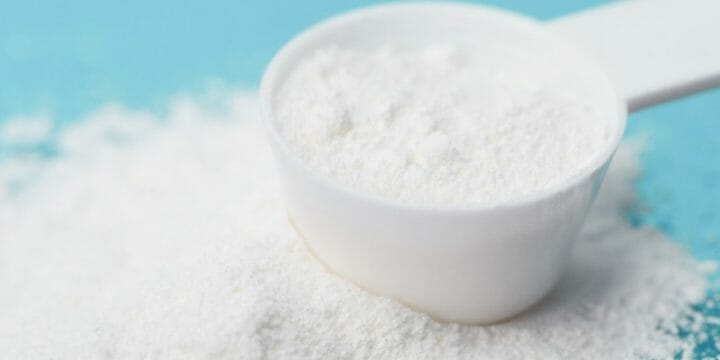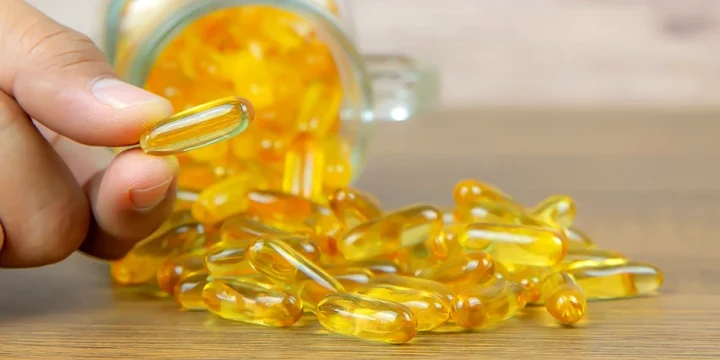As a personal trainer and nutritionist, many people approach me with questions about what breaks a fast and what's safe to consume while fasting. And among the common questions I get is whether fish oil supplements break a fast.
So, I decided to compile what I know about fish oil, and did additional research on the same to publish this report that explores the benefits of fish oil, their side effects, and whether they can break a fast.
Let's dive in.
Quick Summary
- Fish oil doesn't break fast as it contains pure fats with no digestible proteins or carbs, and very few calories.
- The benefits of fish oil include fighting inflammation, lowering the risk of developing chronic diseases, and preventing dementia.
- According to studies published in the Journal of Clinical Investigation, introducing omega-3-rich foods like fish oil after fasting can decrease inflammatory cytokines and promote muscle protein synthesis, enhancing recovery and nutrient absorption post-fast.
- Based on my observation, fish oil, when used responsibly, can harmonize with fasting to support both mental and physical health.
Will Fish Oil Break a Fast and Raise Blood Sugar Levels?
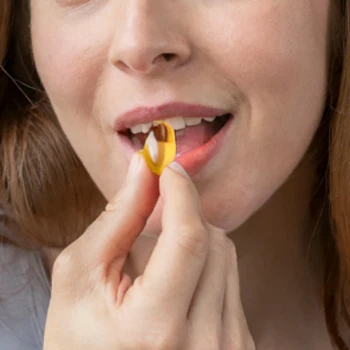
No, fish oil supplementation won't break your fast if you maintain the regular average dose of 1-2 grams per day.
It contains pure fats with no digestible carbs or proteins and very few calories (around 10 calories per gram and approximately 45 calories in one teaspoon).
Many of my clients have shared that maintaining a regular dose doesn't interrupt their fast. It has been a game-changer for them during fasting periods.
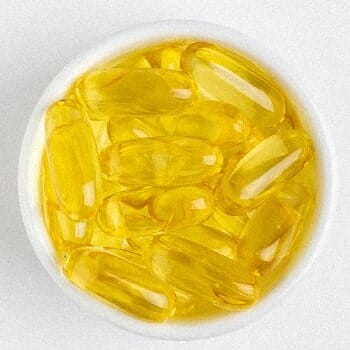
If you’re fasting for:
- Overall health
- Longevity
- Weight loss
- Hunger or junk food craving suppression
- Metabolism increases to aid the fat-burning process
- Turn on autophagy
- Fight insulin resistance
Taking a few fish oil pills or drops won't spike insulin, affect blood sugar, or greatly disrupt autophagy. But, they do activate your digestive system.
My clients have found that the low-calorie, healthy fats in fish oil don't hinder fasting.
Plus, fish oil's anti-inflammatory properties may even boost fasting's benefits by reducing inflammation. If you're concerned about calories during intermittent fasting, I've got some tips on how to include fish oil effectively.
How to Take Fish Oil When Fasting

A successful approach for my clients has been splitting their fish oil intake into two daily doses, each with a meal.
This tweak has significantly enhanced absorption and reduced digestive issues – a minor adjustment with major perks, they say.
“Without a proper meal, especially a high-fat meal, the natural digestive processes in the body are slower and less effective. If an omega-3 supplement is usually taken in the morning without food, less will be incorporated into cell membranes, potentially not providing the expected benefits. Meal-skipping, especially breakfast, therefore means consumers might not be getting sufficient omega-3 to where it’s needed, no matter how strong or potent the supplement claims to be.”
- Per-Olof Larsson, Global Head of Scientific Affairs at BASF
The Best Sources of Omega-3s to Take After Fasting
Studies in the Journal of Clinical Investigation show that breaking a fast can lead to increased inflammation and nutrient absorption issues [2]. This impacts protein synthesis, affecting muscle building and maintenance.
To counter this, introduce high-quality, lean EPA and DHA omega-3 sources after breaking your fast, as recommended by the National Institutes of Health [3] [4].
I suggest omega-3-rich foods like sockeye salmon, sea bass, and mackerel to my clients. They find these foods tasty and feel great, especially when paired with top-notch fish or algae oil supplements.
Fish Oil Benefits
I've personally seen remarkable health transformations in my clients who regularly include omega-3s from fish oil in their diets.
Among the numerous health benefits of fish oil includes:
- Lowered risk of age-related macular degeneration
- Fighting inflammation
- Lowered risk of chronic diseases such as stroke, heart disease, even cancer
- Reduced symptoms of rheumatoid arthritis
- Decreased triglyceride levels
- Preventing dementia and improving cognitive function
- Inducing autophagy
Additionally, the omega-3 fatty acids in fish oil are crucial for maintaining cognitive function, which could be particularly advantageous during fasting.
Are There Side Effects to Taking Fish Oil?
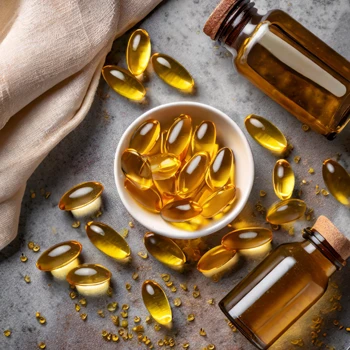
The possible side effects to taking fish oil are typically mild and might include:
- Bad-smelling breath and sweat
- Unpleasant taste
- Headache
- Lower blood pressure
- Increased risk of bleeding (adverse interaction with blood clotting medication)
- Diarrhea
- Nausea
- Heartburn
FAQs
Can I Take Fish Oil on an Empty Stomach?
Yes, you can take fish oil on an empty stomach, but the best way to take it is alongside other meals for better absorption.
What Is the Best Way to Absorb Fish Oil?
The best way to absorb fish oil is to take it with food, specifically a meal rich in fats such as bacon and eggs. These foods will maximize their effectiveness and reduce potential side effects like indigestion, acid reflux, nausea, diarrhea, and belching.
Can Fish Oil Burn Belly Fat?
Yes, fish oil can burn extra belly fat faster, reduce waist circumference, and improve your body composition if combined with a restricted weight-loss diet and regular aerobic exercise.
Is Omega-3 Fish Oil Keto and Paleo-Friendly?
Yes, Omega-3 fish oil is keto and paleo-friendly. You can safely take pure it as it won’t kick you out of ketosis. Just make sure you go for great products from reputable brands that use high-quality wild instead of farmed fish.
References:
- https://pubmed.ncbi.nlm.nih.gov/2847723/
- https://www.jci.org/articles/view/83260
- https://www.ncbi.nlm.nih.gov/pmc/articles/PMC4730128/
- https://www.ncbi.nlm.nih.gov/pmc/articles/PMC3021432/
About The Author
You May Also Like

